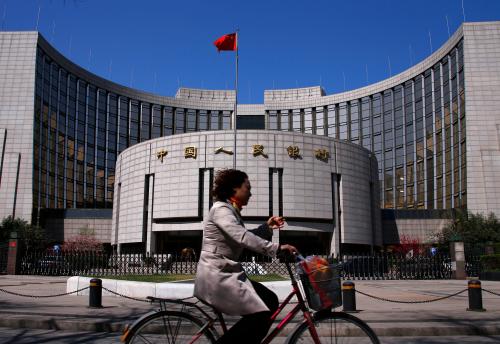Davos moves from plenary meetings to relative small group discussions where interaction with the audience provides a stimulating environment. Yesterday’s discussion on the creation of startups demonstrated the growing links between innovative scientists working in places were costs were lower (the periphery) and headquarters in the industrialized world (the center). How did these transfers of innovation both to and from the periphery work? How do you enable and iterate frugal innovation, and how does one return the product to the industrialized world?
The founder of Innovation Works a Chinese company identified three critical elements: an understanding of trends; identification of smart, creative engineers; capacity to solve discrete problems; and subsequently iterate. Lee had made his fortune doing so with Alibaba, Alipay, and Tencent: all developed in China.
A member of Hewlett Packard’s Board of Directors focused on hiring the smartest people and developing small centers of excellent. Those centers, when successful become leaders in their fields. The executive chairman, with responsibilities at Carnegie Mellon University searched for “disruptive products and processes” throughout the world, such as Trendeal in Turkey. He had created a $300,000 fund to invest in 10 engineers for one year. If successful, the engineer would create a “sweet spot” where specific products met a particular need. With proven utility, he found investors to iterate the product and transfer it to the center in the U.S.
The president of Duke University Medical Center spoke of reverse migration in innovation. New ideas in health are now being developed in India where the regulatory restraints are minimal and frugality is essential. A start up in India has developed the technique to remove cataracts at only 20 percent of the cost of doing so in the US. Now, he seeks to bring the process to the U.S., but faces the challenge of accreditation, regulation and professional challenges. He believes that lower costs and great talent exists in the periphery. However, the participating Chinese engineers are not educated in China, but in the U.S. and Europe where critical thinking and innovation are rewarded.
A leader of General Electric Hong Kong SAR discussed “indigenous innovation” among GE’s personnel who are hired to think creatively and develop a product or process outside the established GE line of business. Each of these innovators collaborates with other GE engineers around the world to develop new products using their particular ideas, skills and collaborative exchanges. An example was the development of a handheld, portable ultra sound machine at a cost of $15,000. From small rural communities, technicians could identify medical problems, send the results to doctors and hasten the treatment. Today, the challenge is not the machine, but its proper use. Before it can be transferred to the U.S., GE must obtain regulatory approval.
Education is critical to developing innovation and U.S. universities were establishing campuses throughout the world to attract talented and frugal innovators. Such campuses could be successful on condition that the same level s of quality learning were established both the center and on the periphery. The potential for frugal innovators and cross fertilization of ideas between the center and the periphery appeared limitless.
Education is critical to developing innovation, and U.S. universities were establishing campuses throughout the world to attract talented and frugal innovators. Such campuses could be successful with the condition that the same levels of quality learning are established both at the center and at the periphery. The potential for frugal innovators and cross-fertilization of ideas between the two appears limitless.
The above piece is one of two that Diana Negroponte, an attendee at the 2012 World Economic Forum in Davos, Switzerland, has written about topics discussed at the conference. The other piece includes a discussion on German Chancellor Angela Merkel’s opening speech.
The Brookings Institution is committed to quality, independence, and impact.
We are supported by a diverse array of funders. In line with our values and policies, each Brookings publication represents the sole views of its author(s).






Commentary
Stimulating Innovation on the Periphery
January 27, 2012